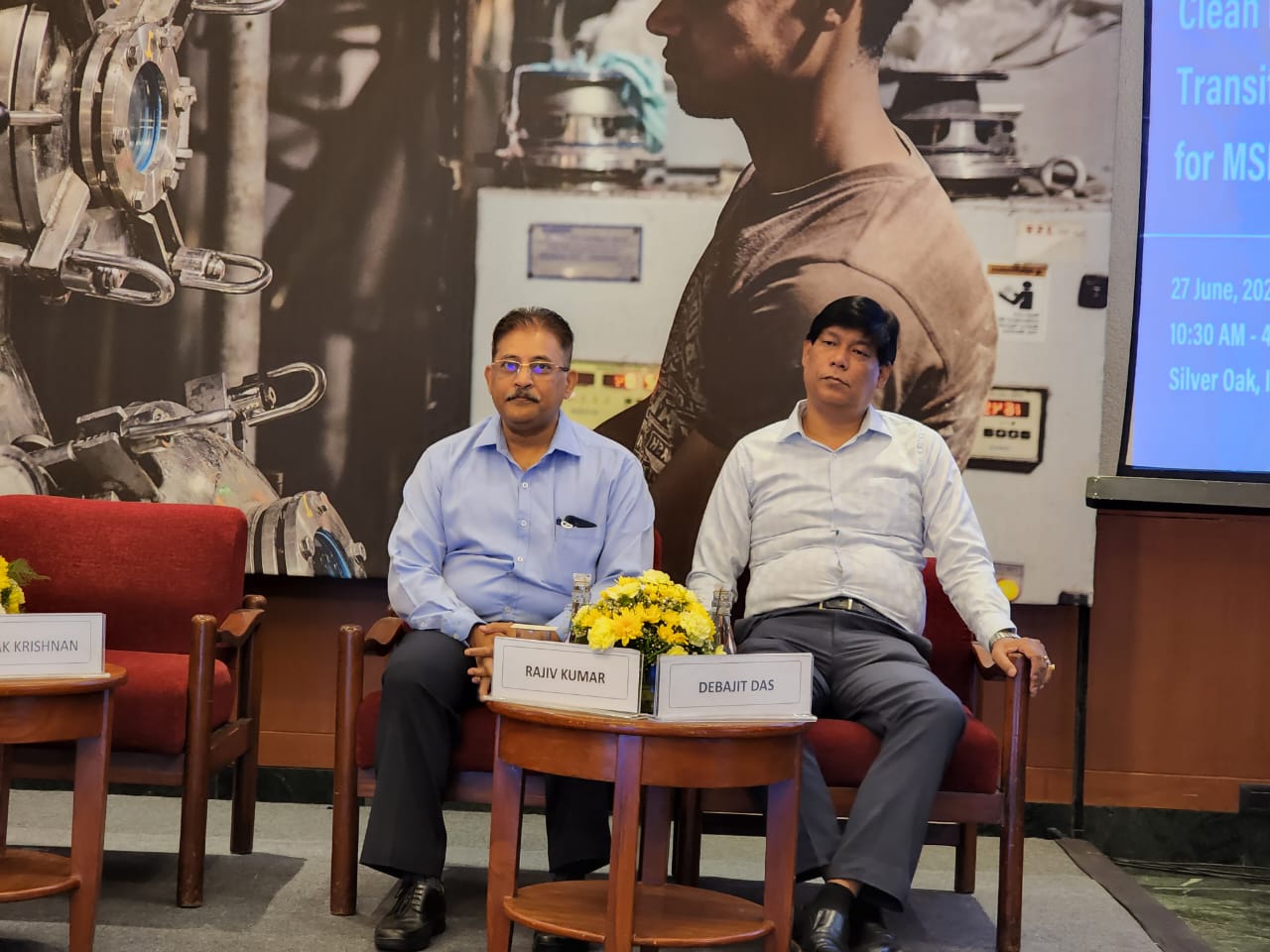NEW DELHI: Academicians, industry leaders, and experts on Monday asked the government to bring unrecognized micro, small and medium enterprises (MSMEs) within the ambit of initiatives aimed at facilitating small industrial units to switch to clean energy. They also agreed that the sector has an important role for India to achieve the net-zero carbon target.
Speaking at the ‘clean energy and just transition conference of MSMEs in India’ conference here, World Resources Institute (WRI) India director Dr OP Aggarwal said, “India cannot achieve net-zero emissions by 2070 without addressing the energy needs and clean energy challenges of the country’s 63 million-strong small businesses community.”
“Solutions for this sector would also make them globally competitive, as ever more multinational corporations look to decarbonize their supply chains,” he added.
Abhay Bakre, Director General of the Bureau of Energy Efficiency, an agency under the power ministry, praised India’s MSME sector for being responsive, flexible, highly-skilled, and requiring the least investment to transition to cleaner forms of energy.
“For us, the MSME sector is our top priority, and we believe whatever we do for the SME sector, will shape India’s transition to clean energy,” he said.
Speaking to The New Indian, Small Industries Development Bank of India (SIDBI) general manager Rajiv Kumar said the transition to clean energy will increase the profitability of the MSMEs by decreasing the cost of production.

“SIDBI has launched schemes to provide loans to MSMEs at a very low-interest rate of 5.4 per cent to 7.5 per cent to facilitate them to adopt clean and green ways of production techniques. We provide financial and hand-holding support to the MSMEs such as energy audit and advisory service of the right kind of equipment to be used for production,” he said.
However, some experts expressed concerns over “missing” synergy among different government and private agencies working to make industries go green.
United Nations Industrial Development Organization (UNIDO) National Project Coordinator Debajit Das said that many agencies are working with a single goal to help MSMEs adopt green technologies, but there is no synergy among them.
“The inclusion of MSMEs in our programmes is a major challenge for India. The MSME sector is so vast and a lot of MSME units are unrecognised in the informal sector. When you talk about the 2030 interim roadmap, we need to have policy directions and actions directed to make it inclusive,” he told the gathering of startup owners, financing firms, and industry experts.
India is the third-largest emitter of carbon dioxide (CO2) after China and the United States.
At the COP26 climate summit last year, Prime Minister Narendra Modi made the historic announcement of making India net-zero greenhouse gas emissions by 2070. As a short-term goal, the PM had said that the country will reduce the emissions intensity of its economy by 45 per cent, which experts believe is an ambitious target.
MSME clusters are a big part of our GDP and we cannot leave them aside and only focus on big industries, said Pradeep Srivastava, Executive Director, Technology Information Forecasting and Assessment Council.
The number of MSMEs is rising rapidly due to the government’s push to manufacture and self-reliance. Between 2019 and 2020, this number increased by a CAGR of 18.5 per cent. In Financial Year 2020-2021, Indian banks disbursed Rs. 9.5 trillion of loans to MSMEs, which is an increase of 40 per cent compared to FY20.
Notably, MSMEs constitute a huge chunk of the Indian manufacturing industry. The share of the MSME in all India manufacturing gross value output during the year 2018-19 and 2019-20 were 36.9 per cent and 36.9 per cent respectively, as per the government of India.
Painting a grim picture of the transition to clean energy, Das revealed that there is no estimate of how much energy MSMEs are consuming. “It reflects where we stand. Our programmes don’t know each other. Initiatives are overlapping,” he added.
He also said that apart from solar PVs, the country also needs to focus on other forms of renewable energy, and provide comprehensive technological and financing support to small industries so that they can easily switch to more energy-efficient green energy options.










